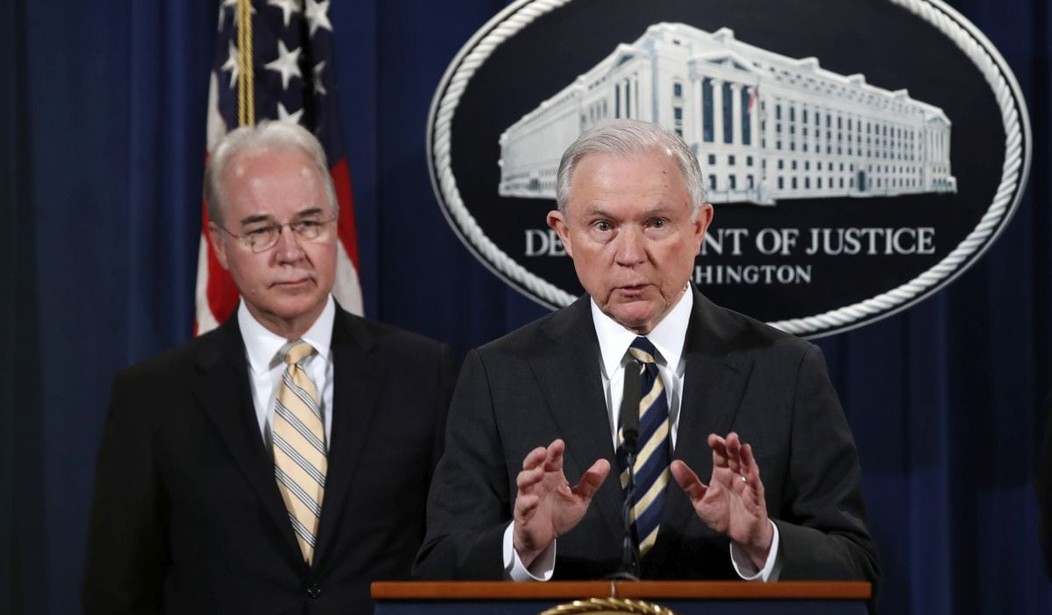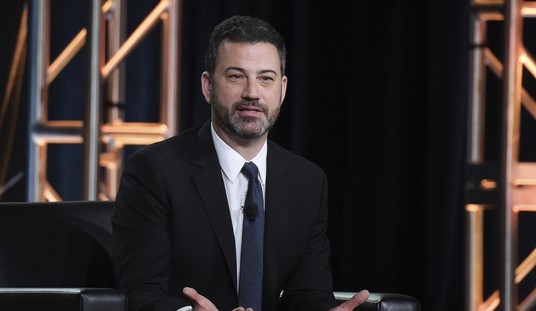Attorney General Jeff Sessions and HHS Secretary Tom Price announced the arrest of 412 people in connection with various health care fraud schemes across 41 federal districts.
Facing charges are 412 people across 41 federal districts, who the DOJ alleges have extracted $1.3 billion in false billings through a variety of unconnected schemes. The defendants include 115 doctors, nurses, and other licensed medical professionals. HHS has also initiated suspension proceedings against 295 providers, including doctors, nurses, and pharmacists.
The busts also constitute the largest opioid-related fraud charging in U.S. history—120 of the defendants, including doctors, face charges for their role in prescribing and distributing opioids and other narcotics.
“Too many trusted medical professionals like doctors, nurses, and pharmacists have chosen to violate their oaths and put greed ahead of their patients,” Sessions said. “Amazingly, some have made their practices into multimillion dollar criminal enterprises. They seem oblivious to the disastrous consequences of their greed. Their actions not only enrich themselves often at the expense of taxpayers but also feed addictions and cause addictions to start. The consequences are real: emergency rooms, jail cells, futures lost, and graveyards.”
The fraud schemes targeted by the Department of Justice were focused on Medicare, Medicaid, and TRICARE, the latter of which provides health insurance for veterans and their families. They often involved medically unnecessary drugs, frequently not even distributed to those for whom they were prescribed. In many cases, co-conspirators were paid cash kickbacks for supplying information so that providers could bill Medicare for unprovided services.
The busts resulted from the enforcement actions of the Medicare Fraud Strike Force, a joint initiative of the Department of Justice and HHS. Since it was created in 2007, the Medicare Fraud Strike Force has charged over 3,500 defendants collectively responsible for over $12.5 billion in fraud.
Health care fraud is a persistent problem for the federal health insurance systems. The state of Florida alone has paid $70.3 million in Medicaid payments to providers facing fraud allegations since 2011.
“Health care fraud is not only a criminal act that costs billions of taxpayer dollars—it is an affront to all Americans who rely on our national health care programs for access to critical health care services and a violation of trust,” Price said. “The United States is home to the world’s best medical professionals, but their ability to provide affordable, high-quality care to their patients is jeopardized every time a criminal commits health care fraud.”
“That is why this administration is committed to bringing these criminals to justice, as President Trump demonstrated in his 2017 budget request calling for a new $70 million investment in the Health Care Fraud and Abuse Control Program,” Price added.
Estimates on the percentage of fraud in those programs varies depending on who is doing the surveying and what party they belong to. But with these programs costing hundreds of billions of dollars, even a small percentage of fraud amounts to billions of dollars of taxpayer funds lost.
So much of the fraud is the result of an inability to track outlays to some physicians who end up claiming hundreds of Medicare and Medicaid patients and ordering thousands of procedures and drugs that aren’t necessary or are never given at all. It takes an anti-fraud unit to painstakingly go through the records and uncover these schemes.
Could anti-fraud efforts be easier and faster? Updating the computer system would go a long way to discovering the worst fraudsters and putting them out of business. As it stands now, audits are most often used to expose the fraud — usually long after the schemers have stolen millions.
In a federal budget of more than $4 trillion, how many tens of billions of that is wasted or stolen? The American taxpayer would surely like to know.










Join the conversation as a VIP Member